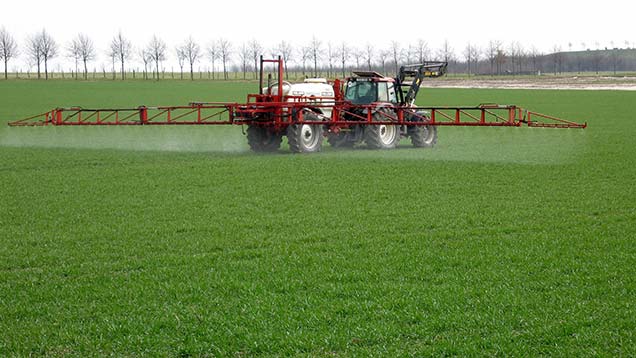Calls for tighter rules on illegal pesticides
 © Rex (Library image)
© Rex (Library image) Tighter rules are needed to keep illegal and counterfeit pesticides out of the European Union, says a report.
The European Commission study into the trade of illegal and counterfeit pesticides in the EU raises concerns about loopholes for products.
According to the Health and Safety Executive (HSE), under the current system importers can bring a pesticide into the EU without any evidence to prove it is safe.
Companies only need to show that their product is identical to one that has already been assessed to be safe for use in the EU.
As a result, the study found “considerable evidence” of misuse of these permits to move illegal pesticides around the EU and to bring them to market once they have been repackaged as an identical approved product.
The parallel trade permit procedure is cheaper and simpler than for a normal authorisation.
See also: Amnesty launched to rid Scotland of illegal pesticides
Crop Protection Association chief executive Nick von Westenholz said the organisation had been concerned about the potential for abuse of permits on the UK market for some time.
He added: “Under the current system, repackaging is allowed. Once the original package has been opened and the manufacturers seal has been broken, it becomes very difficult to verify that the product inside is genuine.
“While legitimate parallel importers may choose to repack for good reason, this provides a loophole that unscrupulous dealers can exploit.”
Chris Sambrook, a criminologist with Thames Valley Police, said dealing in illegal pesticides posed extreme risks not worth taking.
Illegal pesticides that are unregulated and uncontrolled may pose genuine risks to human health, food, the environment, and farmers’ livelihoods.
Mr Sambrook said: “Knowing where a product has come from is crucial, and if there is anything out of the ordinary, such as the colour or smell, then you should be questioning it.
“It might have the right active ingredient but there are no guarantees and you don’t know what else is in it, so it poses monumental risks to health and the environment.”
The UK farming industry and agrochemical manufacturers remain committed to raising awareness of the dangers of illegal pesticides through the Watch Out! campaign, promoted by the Voluntary Initiative.

